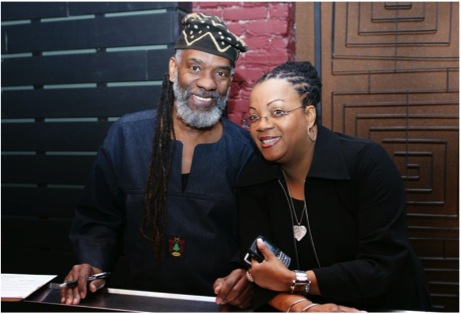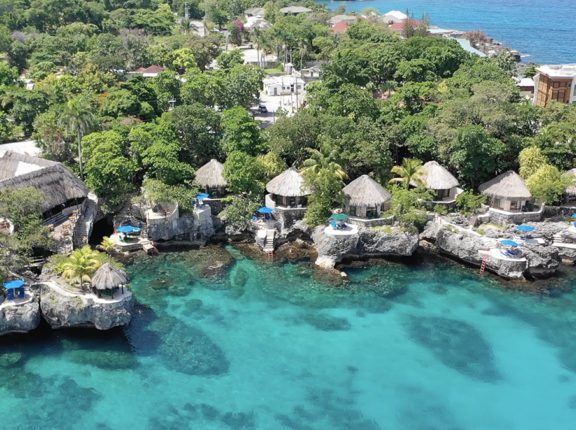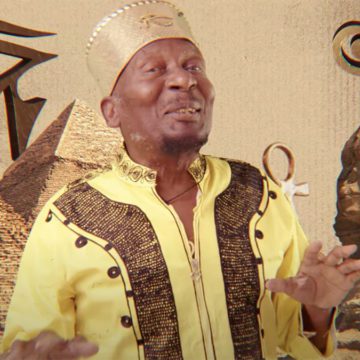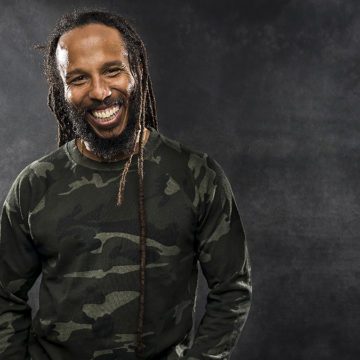Above: Carlyle McKetty (left) and Sharon Gordon
For Carlyle McKetty and Sharon Gordon, protecting reggae is a way of life. The world recently marked the 30th anniversary of Bob Marley’s premature death, and in that time, much of reggae has stayed true to its origins, but some has been lost due to the emergence of Dancehall; Gordon and McKetty founded the New York-based Coalition to Preserve Reggae Music in 2005, aiming to harmonize reggae enthusiasts around the world and “raise the treatment of reggae music.” Gordon and McKetty also produce two radio broadcast shows: Real Talk and Reggae Calling. Caribbean Journal talked to the pair, who are hosting an event next week that will examine the influence of reggae on the African Liberation movement and various political struggles in Africa.
What is the aim of the Coalition to Preserve Reggae?
McKetty: The coalition is really about raising the bar in the treatment of reggae music — the way it’s created, produced, marketed, promoted and presented. I was speaking to an African-American woman recently who told me that she was involved in gospel music, and, as far as she was concerned, it is the same music, because the message of the music has a very spiritual overtone to it. We believe that over the years, that aspect of the music has been overlooked to a large degree. And so we’re on a mission to raise the profile of the music, to increase the understanding of the music, how it emerged, and its potential for impacting social change.
Talk about the conference next week.
McKetty: Three years ago, we started a Community Conversation series. What we do is a series of forums to engage the community and the players in the music industry, in a dialogue about various aspects of the music. Our very first forum was – “Could dancehall be the ruination of reggae and, by extension, Jamaica’s brand?” This was in 2009. And it happened that after we announced our event, the Broadcast Commission of Jamaica actually issued new regulations because of their concerns for the same thing — the direction of the music, the vulgarity [in Dancehall], and how it was impacting social development in Jamaica. The forum on Tuesday, which celebrates African Liberation Day, looks at the impact of reggae music on African liberation and the African continent in general. We know that the music was very inspirational in Zimbabwe’s struggle, in South Africa, in Mozambique, in so many different places. So we know that the music was an inspiration to revolutions, but we also know that the music has been very inspirational in uplifting ordinary people in their day to day lives.
What kind of transformations has Reggae experienced?
Gordon: In the 1980s, there began a “dumbing down.” This happened right after the death of Bob Marley. We can actually point to that period of time. In 1980-81, things were really getting ready to take off in a huge way because Bob Marley, Peter tosh, Jimmy Cliff, Toots [Hibbert], you name it, these guys were out there, touring and spreading the good news, so to speak. And then we lost Bob, and when we lost Bob, it was like the oxygen in the room just left. What happened was that the music began to shift because of the political interest, and an emphasis started to be placed on Dancehall. Dancehall is a subgenera of reggae. The beat is different and the message is different. When it started to do that, it started making the music more materialistic — like in rap and hip-hop where it went from being a music that was more socio-political to music that’s now all about self-aggrandizement.
How different is Reggae’s influence in the Diaspora than it is within the Caribbean?
McKetty: It depends on which area of the Diaspora you are in. It really speaks to the significance of culture. The change in Reggae that Sharon spoke about was the result of the culture. And in fact, Reggae itself emerged as a result of culture. And so the way reggae is appreciated here in the United States really depends on — there’s a regional distinction in the way it is appreciated. In the West Coast, “roots reggae” artists are more successful on the West Coast than on the East Coast. That has something to do with the proximity of the East Coast to the Caribbean. The transference of cultural influences is more direct, more impactful, on the East Coast. So as developments take place in the music, the transference to the East Coast is quite different.
How does that vary within the Caribbean?
Gordon: Even in the Caribbean, you’ll find that if you are speaking to folks who are from certain Eastern Caribbean islands, they are more in tune with “roots reggae” and Rastafari, than they are with Dancehall. Because of the internet, and the shrinking world we’re living in, nowadays even Dancehall music has made its way out there and you find that a younger generation across the Caribbean is embracing this music. But if you dig a little deeper, you’ll find that the average consumer of the art form is a head of a household or a college graduate, or even the man in the street, but they want “roots reggae” music — whether it’s St. Vincent and the Grenadines, or if you look at Antigua or any of those islands, they love Roots music – they’re huge throughout the Caribbean islands.







